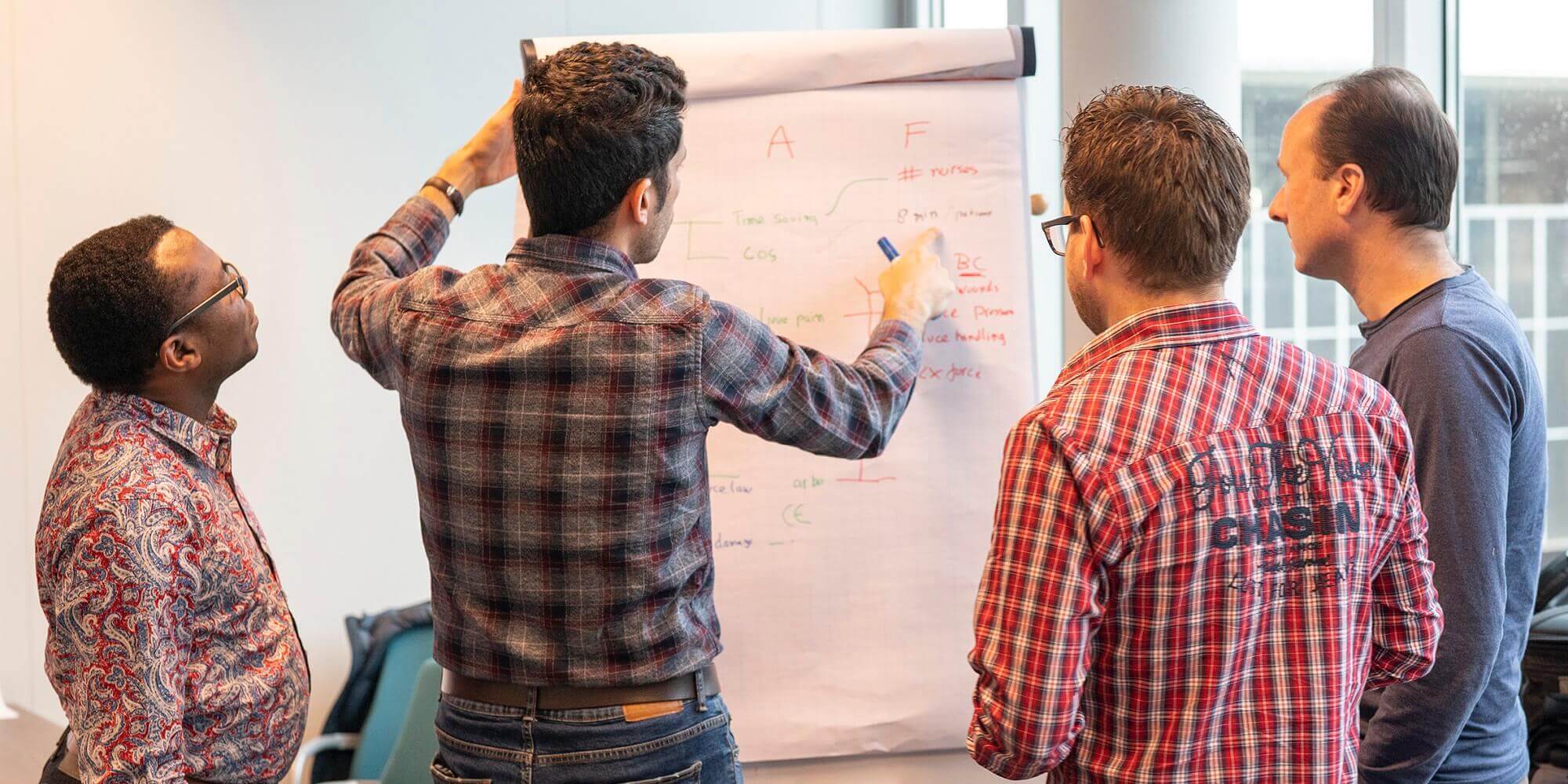The live, instructor-led training will be a mix of lectures and workshops and will take 2 days. On request, an extra day can be added (eg to handle requested products or to dive deeper into certain manufacturing technologies).
Currently, the Dutch high-tech industry is booming and blooming. Impressive machines and equipment are being designed, manufactured and assembled in and around the Netherlands. Both the performance of final OEM products and the manufacturing of complex components lie on the edge of what is technically possible.
To ‘keep in shape’ and strengthen our competitive advantages, we should cherish and nurture the ‘art’ of design for manufacturing (DfM). The gap between the development and assembly of complex systems and manufacturing parts at acceptable cost and short lead times seems to become larger every year.
The good old times when engineers and designers were educated theoretically, practically and thoroughly in manufacturing technologies (eg when Philips was booming) are gone. Many ‘old-school’ manufacturing specialists already are or soon will be retired. The focus on short-term revenue and billable hours currently hinders the proper education of technical talents.
Meanwhile, manufacturing technologies are continuously improving for primary processes like milling, sheet metal and so on, but also regarding software to simulate, program and robotize these processes. For work preparation, a shift can be seen from practical manufacturing specialists toward a new generation of design and manufacturing engineers.
Also, much progress has been made in predicting and simulating manufacturability and determining cost prices of parts during the design phase using model-based definition (MBD) in major 3D CAD applications. ‘Machine-readable’ product and manufacturing information (PMI) is assigned to 3D geometries to facilitate the automation of downstream applications like programming CNC machines, robots and measuring equipment. This MBD way of working also supports engineers in learning manufacturing processes when designing parts; manufacturing knowledge is available with the click of a few mouse buttons.
Bridging the gap between developing complex systems and state-of-the-art digitized manufacturing (Industry 4.0) will improve profitability and competitiveness for raw material suppliers, manufacturing companies, first-tier suppliers and OEMs.
In this training, these new software tools and ways of working will be shown, including their current status, limitations and roadmaps. Complex parts should always be identified, discussed and reviewed with manufacturing (and measuring!) specialists.
This training is available for in-company sessions and can be adapted to specific needs.
Objective
The goal of the DfM training is to introduce design engineers, discipline and systems architects, purchasers, program and project managers, and managers into the world of ‘how things are made’ and ‘how things could/should be made.’ The training will also support making design decisions in early stages of projects.
When understanding manufacturing challenges and opportunities, OEMs and first- and second-tier suppliers can benefit much more from modern manufacturing technologies and companies. These manufacturing companies in return can improve their operational excellence (including earning money to invest in advanced manufacturing technologies) when parts are designed for manufacturability and reproducibility.
Target audience
This course is intended for designers, systems and industrialization architects, and managers involved in making design decisions.
Educational level: technical bachelor’s or master’s degree.
Program
· Design for manufacturing (DfM) in the context of design for excellence (DfX), value engineering, system architecture and product creation processes
· Manufacturing processes:
o Removing material (machining, cutting, etc.)
o Deformation of materials (stamping, forging, bending, hydroforming, etc.)
o Liquid and plastic shaping (casting, injection molding, extrusion, etc.)
o Joining technologies (welding, gluing, brazing, etc.)
o Additive manufacturing (plastic and metal 3D printing, etc.)
o Surface treatments
· Influence of requirements and tolerances on manufacturability, reproducibility and cost price
· Difference in DfM for ‘low volume high mix’ and ‘high volume low mix’
· Role of model-based definition on manufacturability, cost price, first-time right and shortening times to market
· Design for low-cost countries
The instructor, Johan Veldhuis, has years of experience with many manufacturing technologies where designing new products, optimizing cost prices, short lead times and reproducible processes were requested.
Methods
Certification
After attending the training participants receive a High Tech Institute certificate.



